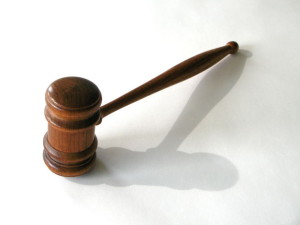 This week I received an email from a fellow IDC (IL Associate of Defense Trial Counsel) member, William K. McVisk of Johnson & Bell in Chicago. He explained a recent ruling by a Cook County Law Division judge that could greatly impact every lawyer who practices tort defense litigation in Chicago.
This week I received an email from a fellow IDC (IL Associate of Defense Trial Counsel) member, William K. McVisk of Johnson & Bell in Chicago. He explained a recent ruling by a Cook County Law Division judge that could greatly impact every lawyer who practices tort defense litigation in Chicago.
This ruling is being appealed, but I am greatly appreciative of Mr. McVisk for advising us of the ruling and I thought it was important to share as well. I recommend that everyone who handles tort defense, both attorneys and claims examiners, be aware of this possible change in the law.
Below are excerpts from Mr. McVisk’s recent email:
Written by: William K. McVisk, Johnson & Bell, Ltd., Chicago
IDC members should be aware of a recent ruling by Cook County Circuit Judge Kathy M. Flanagan, which expands the rule in Petrillo v. Syntex Laboratories, Inc., 148 Ill.App. 3d 581 (1st Dist. 1986), and creates significant risk for defense counsel who are not aware of the scope of this ruling. In Thompson v. University of Chicago Medical Center, No. 2012 L 010412, Judge Flanagan ruled that defense counsel violated Petrillo by forwarding a copy of the plaintiff’s complaint to counsel retained by a treating physician prior to the physician’s deposition. As a result, the court entered sanctions against the defendant, ruling that defense counsel could not ask opinion questions of the witness, either at deposition or at trial, and struck many of the questions and answers from the witness’s deposition.
In Petrillo, the court ruled that counsel for a defendant could not engage in ex parte communications with a plaintiff’s treating physician. Specifically, the court ruled that “discussions between defense counsel and a plaintiff’s treating physicians should be pursuant to the rules of discovery only.” 148 Ill.App. 3d at 610. This decision spawned numerous disputes about the scope of the limitation and attacks by the defense bar on the rationale behind the decision. See, e.g., Almgren v. Rush-Presbyterian-St. Luke’s Medical Center, 162 Ill.2d 205 (1994); Morgan v. County of Cook, 252 Ill.App. 3d 947 (1st Dist. 1993); Burns v. Michelotti, 237 Ill.App. 3d 1144 (2d Dist. 1992); Baylaender v. Method, 230 Ill.App. 3d 610 (1st Dist. 1992). The rationale of the Petrillo decision was that a physician has a fiduciary relationship with the patient, and ex parte conferences between the physician and counsel for the patient’s adversary would threaten that fiduciary relationship.
Despite the sweeping scope of the Petrillo prohibition, though, the courts have also recognized that a treating physician has the right to consult with his or her own attorney, even though the physician is not a party to the suit or before suit is filed. Baylaender, 252 Ill.App. 3d at 624.
Thus, a physician has the right to seek the representation of counsel when being deposed, even though the physician is not a party to the suit. Presumably, the right to counsel would also include the right for counsel to be fully informed about the plaintiff’s claims, so that counsel can adequately represent the physician.
Not so, according to Judge Flanagan in Thompson. In Thompson, the plaintiff filed suit against University of Chicago Medical Center (“UCMC”) and others alleging medical malpractice stemming from a surgery performed by one of the surgeons on hits medical staff. After discovery of the parties was complete, the parties began depositions of treating physicians. UCMC wanted to depose Dr. John Grayhack because he performed surgery on the minor plaintiff substantially similar to the surgery performed at UCMC a year earlier. Fearing a lawsuit, Dr. Grayhack retained his own attorney to represent him. UCMC’s counsel obtained permission from the plaintiff’s attorney to send medical records that would be used at the deposition to Dr. Grayhack’s attorney. When UCMC’s counsel sent the medical records, he also included the reports of the health professionals’ reports that had been attached to the plaintiff’s second amended complaint. The plaintiff’s counsel was copied on this correspondence.
As soon as the plaintiff’s attorney learned that defense counsel had forwarded the reviewing healthcare professionals’ reports to Dr. Grayhack’s attorney, he brought a motion to bar testimony at deposition, relying on Moss v. Amira, 356 Ill.App. 3d 701 (1st Dist. 2005) and Natasi v. United Mine Workers of America, Union Hosp., 209 Ill.App. 3d 830 (5th Dist. 1991).
The court in Thompson ruled that any communication with the attorney for the physicians which had not been specifically authorized by the plaintiff’s attorney was a violation of Petrillo, and barred defense counsel from asking Dr. Grayhack any opinion questions, and further deputized plaintiff’s counsel to instruct Dr. Grayhack not to answer any such questions if they were asked. Notably, during his deposition, Dr. Grayhack testified that he had never seen the copy of the plaintiff’s complaint or the attached health professional reports.
Following the deposition, the court barred large parts of Dr. Grayhack’s testimony from being used at trial. UCMC has filed a petition for a supervisory order to reverse Judge Flanagan’s ruling before the Illinois Supreme Court, and awaits a ruling on its petition.
Thanks again to William McVisk of Johnson & Bell, Chicago for this important information.